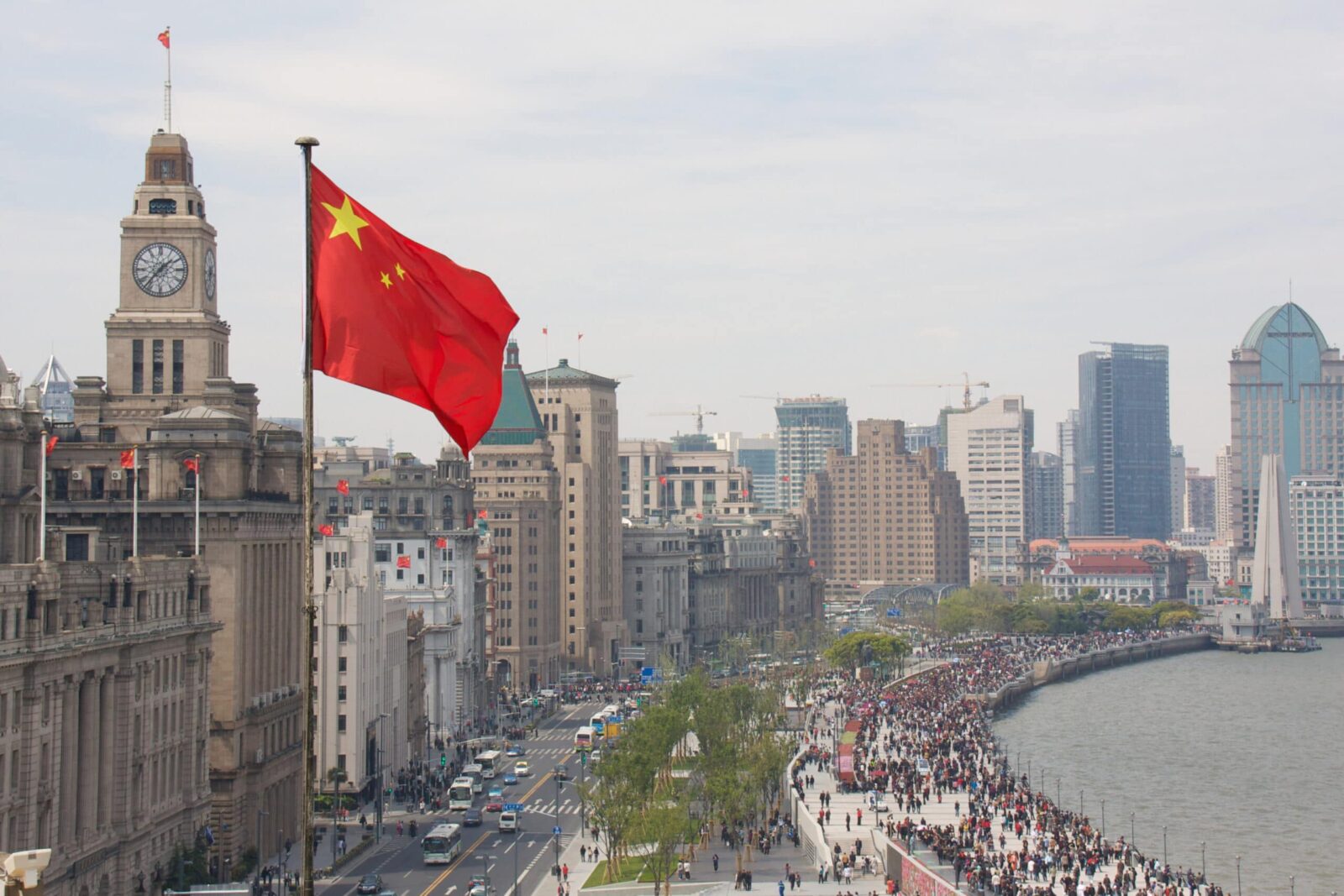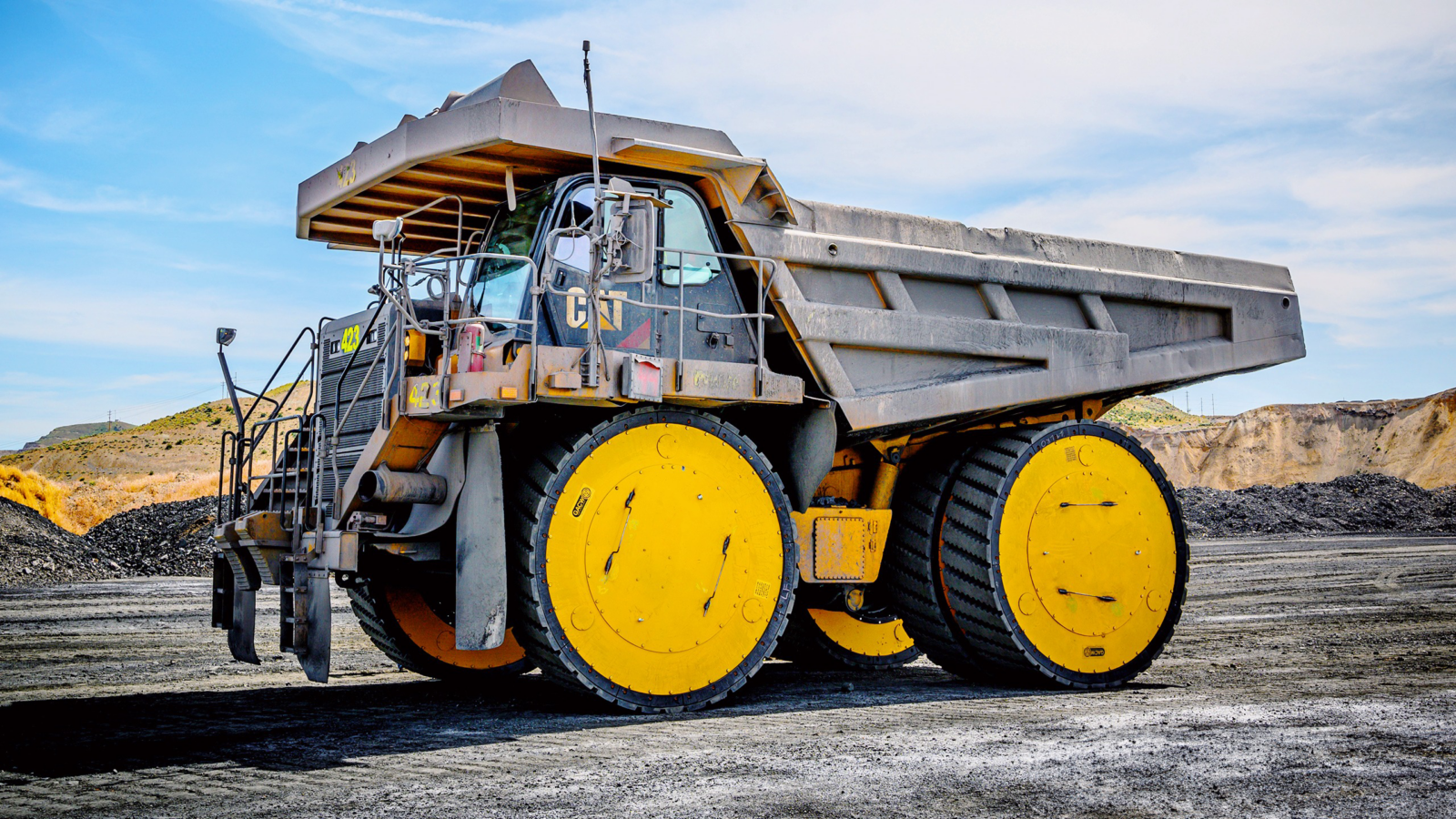Good morning and happy Monday.
Supply-chain woes have the airline industry on the edge of its seat again.
A high-end aircraft seat shortage is hampering companies from enticing customers with fancy new upgraded interiors. One seat-making CEO told the Financial Times that shortages of electronics from a whole other supply-chain crunch had contributed to slower turnarounds for installments of premium seating, which is where airlines try to differentiate themselves for the high-end passenger. Considering a first-class flight from San Francisco to Dubai on Emirates runs about $23,000, it would be nice to be able to plug in our iPad.
Chinese Regulators See Regional Banks Headed for SVB-Style Chaos

Could China be looking at its own version of an SVB-like meltdown?
Over the weekend, the Financial Times reported that Chinese authorities are concerned by regional banks piling into longer-yielding government bonds in recent months, which could risk the same kind of outcome that caused the biggest US bank failure of the last 15 years.
Bond Bonanza
China’s economy remains somewhat between a rock and a hard place. The government has an ambitious plan for 5% GDP growth in 2024 — the same rate as 2023 — but continues to face a beaten-down property sector and sluggish consumer demand. Chinese President Xi Jinping is attempting to bolster the economy by subsidizing high-end manufacturing but the results are uneven at best. Chinese equities, which as a whole are roughly flat over the past two months, are still down about 7% from a year ago.
In response, regional banks in China have been boosting their purchases of long-dated sovereign bonds to eke out returns. That’s driven yields down to two-decade lows, but even a 1% return beats losing one’s shirt trying to navigate the troubled property sector. The problem, as always, is what can happen when too many banks are loading up on the same trade:
- The People’s Bank of China, the country’s financial sector regulator, voiced its unease with the lockstep move by regional banks, given the riskiness of rates rising again. “If a large amount of funds are locked in long-term bonds with low yields, and if the cost of the liability increases significantly, the funds will be caught into a passive situation of sizable drawdowns from a sharp repricing,” a bank spokesman told the state-owned Financial News.
- Chinese banks, led by regional lenders, purchased $37 billion worth of sovereign bonds in the first quarter of this year. The PBoC has suggested it could step up bond issuance to try to limit the rally as well as intervene in the secondary market to manage liquidity.
The nightmare is a rerun of the Silicon Valley Bank run triggered by depositor fears that the bank had too much money held in long-dated Treasuries — and not enough liquidity to honor deposits.
Elon’s Charm Offensive: Tesla CEO Elon Musk has had his own commercial issues with China lately, so he made a surprise visit over the weekend — after just canceling a planned trip to India — as he tries to shore up the fortunes of Tesla, which has seen sales slide due to domestic rival competition and an overall drop in EV demand. One of Musk’s main goals was to get more support for the company’s Full Self-Driving feature (a misnomer, it’s actually driver-assistance software), which Chinese officials have historically been frosty towards on the basis that it might leak Chinese drivers’ data. However, Monday morning saw reports from The Wall Street Journal and Bloomberg that Musk has managed to get clearance to sell FSD in China by partnering up with Chinese tech giant Baidu. An impressive feat, given the latest geopolitical wrangling over US-China data flows.
Final Day: 3 Reasons to Invest in GACW

With only a few hours left to invest in Global Air Cylinder Wheels (GACW), here are 3 reasons not to miss this opportunity.
- Reinventing the Wheel: Replacing traditional mining tires costs $75k every 6-9 months. GACW’s safer, more durable, and 100% recyclable Air Suspension Wheel (ASW) eliminates this cost and lasts the lifetime of the vehicle.
- TIME’s Best Invention: The ASW was named one of TIME’s best inventions of 2023, with the potential to disrupt mobility in mining, construction, and beyond.
- $280B Market Opportunity: Boasting $3M+ in sales and in trials with some of the world’s top mining companies, GACW is on track to capture a significant share of the global tire market.
Don’t miss this game-changing investment opportunity. Invest in GACW by midnight tonight.*
General Catalyst Closes $6 Billion Fund
What venture capital drought?
General Catalyst, the influential Silicon Valley VC firm with investing hits including Stripe and Snap, closed a nearly $6 billion fund, sources told the Financial Times over the weekend. It’s a sign that the VC industry’s newest chapter is a story of the haves and have-nots.
A Venture is Out There
VC funding is in the gutter due to high interest rates and a still-turbulent IPO market. US firms raised just over $9 billion in the first quarter of the year, according to Pitchbook data, well off the pace of the $81 billion raised throughout 2023, which was half as much as 2022 and the worst year for venture funding since 2016. But General Catalyst maintains a strong reputation — and its outside-the-box strategies have kept it appealing to institutional investors even as its peers start to sweat.
The firm has expanded its purview to startups the world over as well as into industries like healthcare and education typically passed over by other VC firms because of already entrenched players. In January, it even acquired healthcare system Summa Health.
The performance has proven enough to keep General Catalyst at the top of the VC food chain — though the industry is starting to finally move its mountain of “dry powder”:
- General Catalyst’s $6 billion fund places it in league with fellow VC titan Andreessen Horowitz, which recently closed a $7.2 billion fund; meanwhile, former big shot Tiger closed its latest fund at $2.2 billion, roughly just a third of its goal. The General Catalyst and a16z funds mark the biggest in the industry since the end of 2022, according to Pitchbook.
- US VC firms entered the year with around $311 billion in unspent cash, according to Pitchbook, pent up from massive amounts raised in 2021 and 2022. In the first quarter of this year, US startups scored over $36 billion in VC investments, according to a recent KPMG report, marking a 16% uptick from the same quarter.
Into the Woods: Investments in AI continue to be a bright spot in the startup world. Last week brought just the latest marquee fundraising round; on Thursday, sources told the Financial Times that Sequoia Capital would join a fundraising round for xAI, Elon Musk’s startup designed to take on OpenAI. The round could be as big as $6 billion, sources said, and possibly value the company at around $18 billion. It’s the firm’s second major bet on Musk, after previously backing his Twitter takeover with an $800 million investment. Of course, Fidelity recently implied that the platform (now X) has seen its value tank by 73% since the Musk takeover. Fool Sequoia once…
Blade to Launch Hamptons-Bound Luxury Bus Line
The wheels on the bus go round and round — even at $275 a seat.
Over the weekend, the New York-based Uber-for-helicopters company announced it will soon launch a line of luxury buses. The final destination: the Hamptons. Were you expecting anything else?
Riding First Class
Blade’s marquee helicopter service has operated for a decade delivering well-to-do New Yorkers around the city (it also expanded to the San Francisco Bay Area and Southern California). With a move into buses, the group plans to keep things classy — and exclusive — with service more akin to first-class flight tickets or luxury private jets than slumming it on a Greyhound.
Naturally, that sets its bus service apart from its major competitor, the storied Hamptons Jitney:
- Blade’s bus service, dubbed the Hamptons Streamliner, will seat 19 passengers. Tickets start at $195, with seven premium seats going for $275; passengers will be treated to free refreshments including Sweetgreen salads and espresso martinis.
- That puts the Streamliner in stark contrast to the 50-year-old Jitney, which typically seats 54 passengers with tickets starting around $41.
The Streamliner has just one pick-up location, Hudson Yards, and will make just three stops: Southampton, Bridgehampton, and East Hampton. Service will start ahead of Memorial Day weekend and run through the fall.
Heartstopper: Ultra-luxury buses aren’t Blade’s only side hustle. In fact, delivering people via helicopters might also qualify. In its latest earnings report, Blade revealed that 56% of the $225 million in revenue it generated last year came from transporting hearts, livers, lungs, and other human organs around the country — a development recently detailed by Robinhood’s Sherwood News. The company now claims to be the largest transporter of human organs in America. That beats delivering vital human organs via the bus.
Frequent Fliers Will Want to Keep An Eye on this Senate Bill. Congress is considering legislation that would threaten your hard earned travel rewards, points, and miles. If passed, the bill could not only put an end to travel rewards, but compromise the security of card holders. Learn more about how you can protect your points.
Extra Upside
- Bury the lede: Jeff Zucker withdraws bid for The Telegraph.
- Bank shot: Federal regulators seize Philly-based First Republic Bancorp.
- Roll the credits: Paramount Global parts ways with CEO Bob Bakish.
Just For Fun
Disclaimer
*Disclosure: This is a paid advertisement for Global Air Cylinder Wheels, Inc. Reg CF offering. Please read the offering circular at invest.globalaircylinderwheels.com.

